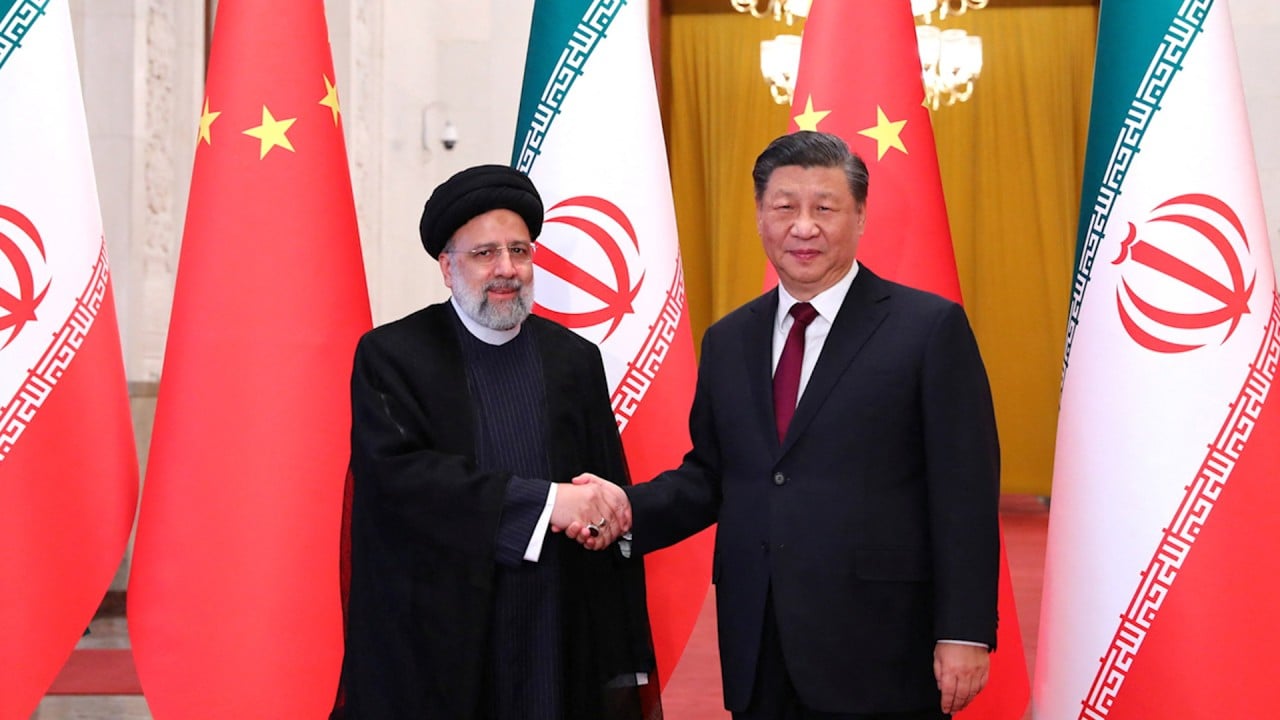
Saudi Arabia says US, China ties not ‘zero-sum game’
- US Secretary of State Antony Blinken, meanwhile, insists the nation is not being asked to choose sides between superpower rivals Washington and Beijing
- China’s growing role in the Middle East was demonstrated when it brokered a surprise rapprochement between Saudi Arabia and Iran in March
Saudi Arabia said on Thursday its relations with the United States and China were not a “zero-sum game”, as US Secretary of State Antony Blinken insisted its ally was not being asked to choose sides.
Foreign Minister Prince Faisal bin Farhan, in a joint press conference with Blinken, played down talk that the oil-rich kingdom was moving away from Washington in favour of its giant rival, Beijing.
“I don’t ascribe to this zero-sum game,” Prince Faisal said in Riyadh. “We are all capable of having multiple partnerships and multiple engagements and the US does the same in many instances.
“So I’m not caught up in this really negative view of this. I think we can actually build a partnership that crosses these borders.”
China’s growing role in the Middle East was demonstrated when it brokered a surprise rapprochement between Saudi Arabia and Iran in March, seven years after the two heavyweights severed ties.
The deal, announced in Beijing, followed recent tensions between Saudi Arabia and the US, its decades-old security guarantor, mainly over human rights and oil prices.
But Blinken said on Thursday: “We’ve also been very clear we’re not asking anyone to choose between the United States and China.
“We’re simply trying to demonstrate the benefits of our partnership and the affirmative agenda that we bring.”
Syria’s Assad gets warm welcome at Arab summit after years of isolation
Prince Faisal also defended the controversial decision to lift Syria’s Arab League suspension, which came soon after the start of the country’s civil war 12 years ago.
Syrian President Bashar al-Assad’s invitation to last month’s Arab League meeting in Jeddah was condemned by the United States.
“The context is that the status quo was not working, and was generating an ever-increasing burden on countries of the region and on the people of Syria,” Prince Faisal said, referring to the refugees created by the war.

“Regardless of what one thinks about Bashar al-Assad, we took the only pathway to resolving the humanitarian challenges that we face in the aftermath of the Syrian crisis.”
Blinken said the US did not agree with readmitting Syria, but was aligned with the goals of working towards a peace process, stopping the Islamic State group’s re-emergence, allowing access to humanitarian aid and stopping the Captagon trade.
“I have to admit we are sceptical of Assad’s willingness to take the necessary steps, but we’re aligned with our partners here on what those steps are, and on the ultimate targets,” he said.

.png?itok=arIb17P0)
